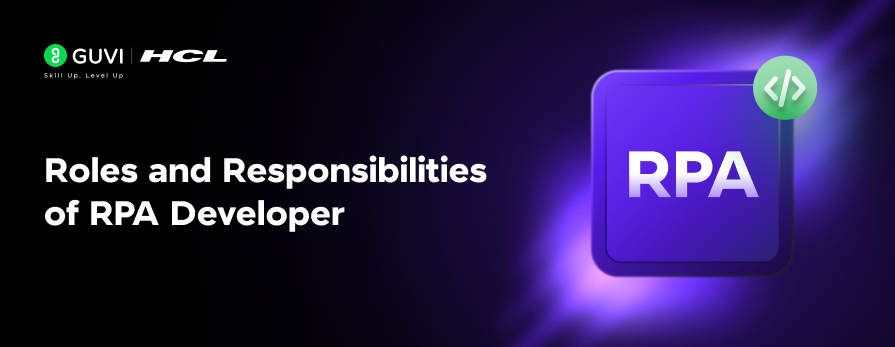
Roles and Responsibilities of RPA Developer
Mar 24, 2025 4 Min Read 4176 Views
(Last Updated)
Are you interested in Automation? Do you want to become an RPA Developer? But not sure what it is and what they do? Well, you are in the right hands.
In this blog, we will see the roles and responsibilities of a RPA Developer. What they do as a RPA Developer, Which companies hire RPA Developers and What skills you need to become one.
Whether you are a beginner or a tech person who is exploring different areas, this is a good place for you to learn about an overview of RPA. Let’s get started with a simple introduction to RPA!
Table of contents
- What is RPA?
- Roles and Responsibilities of RPA Developer
- Responsibilities of RPA Developer
- Various Roles of RPA Developer
- Skills Required for an RPA Developer
- Companies Hiring RPA Developer
- Conclusion
- FAQs
- Q1. Does an RPA developer need coding?
- Q2. What is the salary of an RPA developer?
- Q3. Can a person from a non-technical background become an RPA developer?
- Q4. How long will it take to learn RPA?
What is RPA?
Robotics Process Automation(RPA) is a technology that uses robotic software known as bots to automate repetitive tasks. It is a process of building the software bots according to the requirements of the tasks.
For example, after creating an account on a website we get a confirmation email saying that we successfully created our account on that website. This email is sent by automatic email bot after confirming our registration. Nowadays, every website has this feature, it is one of the examples of the vast usage of RPA. Now that we know what RPA is, let’s dive into the responsibilities of a RPA developer.
Roles and Responsibilities of RPA Developer
A person who builds these automatic robotic software is known as a Robotics Process Automation(RPA) developer. According to the State of RPA Developer Report 2022, released by the leading RPA company – UiPath, 3 in 5 developers have transitioned to RPA from another role, most often from software development roles. Of these, 53% say it was an easy transition.
Responsibilities of RPA Developer

The responsibilities of a RPA developer are from identifying the problem to building and deploying the automation solution. Let’s briefly look into it.
- Problem Identification
The first responsibility of an RPA developer is to identify a problem to automate it. There are so many problems in the world that need to be addressed, but every problem is not able to be automated. The developer needs to find a problem that a human is repetitively doing. The problem needs to be worthy and at the same time, it should save time by automating it.
- Requirements Gathering
Once the developer identifies a problem, their second responsibility is to gather requirements for the approached solution. Requirements gathering is an important responsibility, where they decide whether it is a small or a big project and in the future when they work they need to meet the requirements gathered in this step. If it is a small project, they will gather a small team, relevant technical resources will be small and vice versa for a big project.
- Market Exploration
The third important responsibility is market exploration. Exploring the market is a crucial responsibility where they find the needs and potential customers for the project. A detailed market exploration is essential for any project before building it. According to this, they will decide the number of potential customers/clients and the budget they can allocate.
- Bot Development
The first and most important responsibility of an RPA developer is to develop an automatic robotic system. This responsibility requires you to be quite technical, but trust me it’s worth it. As a developer, you will work on building an automatic bot from scratch that meets the requirements gathered before. Developers must know their customers i.e., whether there will be a tech whiz(company client) or a normal user and build bots according to their level of technology.
- RPA Ecosystem designing
The first responsibility is to design a RPA ecosystem. This responsibility will require you to be a technical expert. An RPA ecosystem is a whole workflow of how the customer accesses the bot. Starting from the user interface that a user interacts with, backend where the automatic bot works, to the service it interacts with. This entire ecosystem will be developed by a set of RPA developers who will be specialized in each area.
- Testing and Deploying
The next comes testing and deploying. Before publishing the project to the market, every project must go through the testing phase. During this testing phase, the project will be tested under various unexpected conditions to check its durability and reliability. It is also one of the responsibilities of an RPA developer. Once the testing is successfully done, it will then be deployed and ready for use.
- Maintenance
The last responsibility of an RPA developer is to maintain the software bot in order to stay consistent. There is no guarantee that a project will always be in the same condition, so they need to monitor it frequently to avoid unexpected errors and downtime.
If you are interested in starting your career as a RPA developer, don’t waste any more of your time. Enroll in Guvi’s Advanced RPA course to get globally recognized certifications and hands-on experience in building automated systems.
Various Roles of RPA Developer

According to the task assigned to a developer, an RPA developer will perform different roles. Let’s see an overview of the roles that an RPA developer typically performs.
- RPA Developers are the person who builds and develops the software bot. They are the technical people who take care of building the user interface and backend apis.
- Average Salary in India: 4-7 LPA
- RPA Engineers design, develop and implement the RPA ecosystem. RPA engineers are similar to RPA developers but they work purely on developing the automation system from planning, designing, implementing, testing and deploying.
- Average Salary in India: 5-7 LPA
- RPA Technical Lead guides a team and oversees the technical aspects of the project. They work closely with both RPA developers and engineers. They provide detailed instructions on what the project is about and keep track of project progress along with its requirements.
- Average Salary in India: 9.6-29 LPA
- RPA Solutions Senior Developer takes responsibility for more complex automation systems. Senior developers are responsible for handling larger projects. They use RPA tools like UiPath, Automation Anywhere or Blue Prism.
- Average Salary in India: 11-33.6 LPA
- RPA Consultant advises organizations on RPA strategies and helps in identifying potential opportunities for automation. They assess the current workflow in an organization and evaluate potential use cases for automation.
- Average Salary in India: 4-21 LPA
- RPA Administrator manages and maintains the RPA infrastructure and software bot’s performance. They monitor the security, scalability and availability of the bot. They also help in troubleshooting and resolving technical issues.
- Average Salary in India: 5-7 LPA
- RPA Business Analyst works closely with stakeholders and determines where RPA brings more value. They identify the boring, repetitive, time-consuming tasks and make them ideal for automation.
- Average Salary in India: 4.4-18 LPA
Once you enter into a company as a RPA developer, these are the possible positions you will be assigned to. Now that we have seen the roles and responsibilities, as a next step we will explore the skills required to become a RPA developer.
Skills Required for an RPA Developer

To become a RPA developer you need both technical and non-technical skills. In this section, we will see an overview of both the skills.
- Programming: RPA development is all about technical skills, it is mandatory to learn programming in any of the languages such as C, C++, Python and Java.
- RPA Tools: This helps in developing automation systems easier.
- Strategic Planning: It is the ability to plan the execution timeline and strategy for the automation system solution.
- Problem Solving: It is the ability to solve problems using automation systems.
- Communication: It requires communicating with teammates, customers and stakeholders.
- SDLC: Building an automated system is similar to building a software system, so the knowledge of the software development life cycle(SDLC) helps in following the development process.
Companies Hiring RPA Developer

Due to the recent advancement in the AI field, there is a lot of potential to automate tasks using AI agents. Many companies are incorporating AI agents for repetitive tasks. Because of this, there are more opportunities. Let’s look into some major companies that hire RPA developers.
- IBM: Focus on combining AI and Machine learning with RPA solutions.
- UiPath: They provide user-friendly automation platforms
- Infosys: They provide end-to-end RPA services to organizations.
- KPMG: They are specialized in RPA consulting and helping clients to automate their workflow.
- EY: They use RPA to improve business operations and integrate with data analytics to deliver advanced insights.
- Capgemini: They focus mainly on sustainable automation for smart decision-making.
- Deloitte: They deliver end-to-end RPA solutions combined with AI and machine learning.
- Cognizant: They focus on implementing RPA on industry-specific solutions.
Conclusion
To conclude, we have briefly discussed the roles and responsibilities of an RPA developer, the essential skills required, the salary expectations and the companies that hire RPA developers.
Nowadays, most companies use automation solutions for repetitive tasks to save money and time. The RPA field is developing faster with the combination of Artificial Intelligence agents and automation. You will not find a better time to start your career in RPA. Stay consistent and updated with recent trends. Learn now and leap later!
FAQs
Even though coding is programming skills and languages are mandatory to become an RPA developer. Due to the rapid advancement in no coding platforms, you can learn tools and techniques to build automation solutions.
The national average salary of an RPA developer ranges from 5L to 16L depending on your role, skillset and experience.
Yes! With an understanding of basic programming and the RPA tools for building automation solutions, anyone with a non-technical background can become an RPA developer.
If you are a complete beginner, it will take approximately from 4 to 6 months of consistent learning starting with basics. If you are a technical person and want to switch careers, it will take only a few weeks depending on your technical level in programming.





















![Top 20 RPA UiPath Interview Questions and Answers [2025] 6 rpa uipath interview questions](https://www.guvi.in/blog/wp-content/uploads/2023/02/Top-20-RPA-UiPath-Interview-Questions-and-Answers.png)
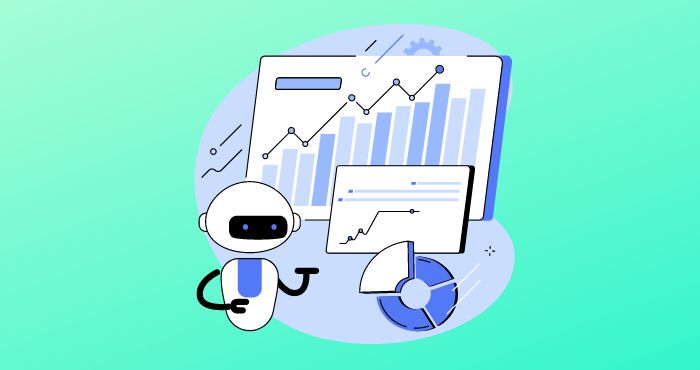
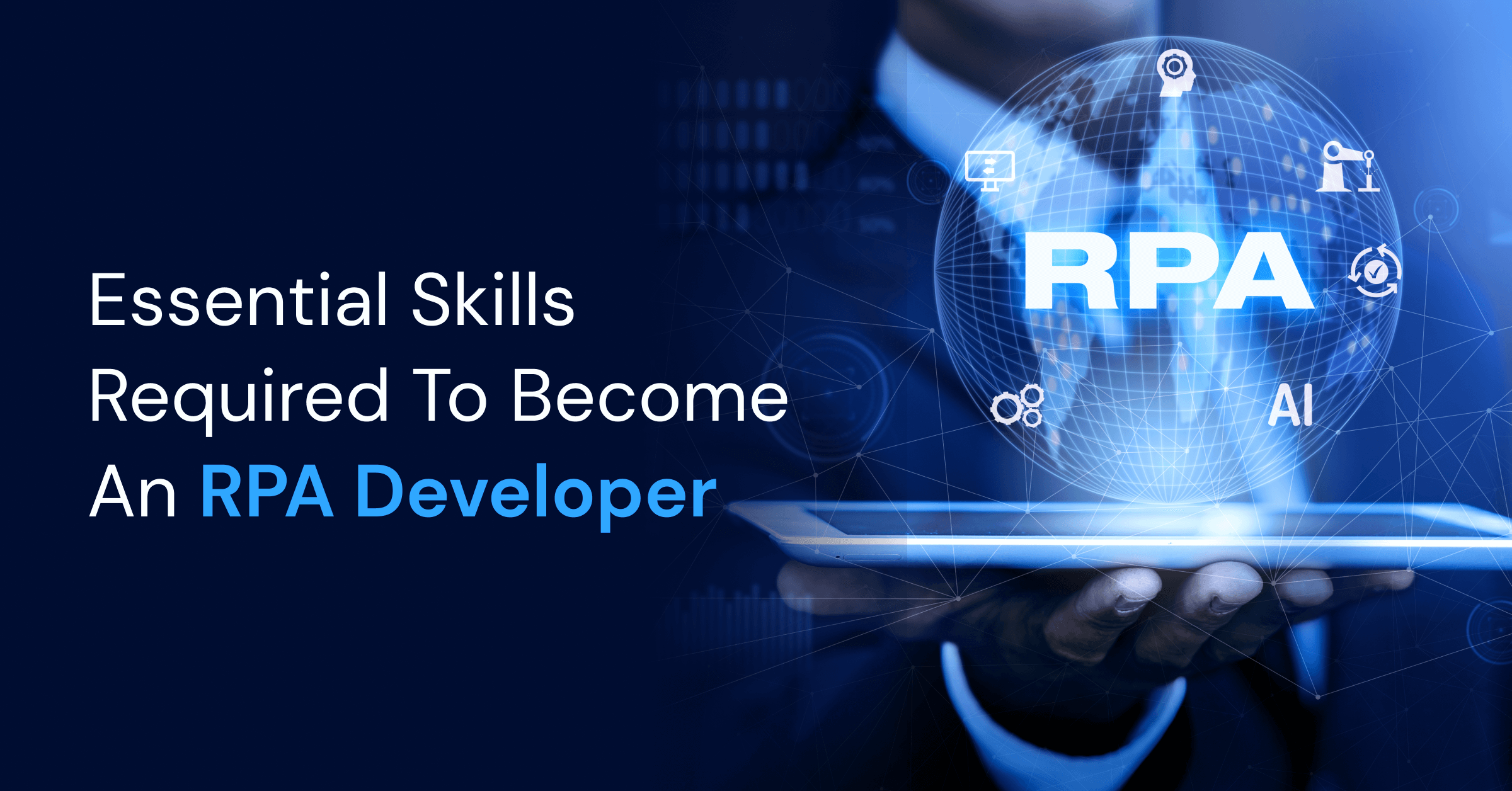
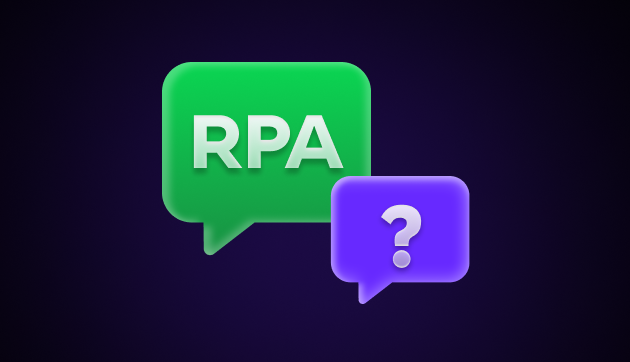
![Best Project Ideas for Robotic Applications - Including All 3 Levels [2025] 9 Feature image - Best Project Ideas for Robotic Applications - Including All 3 Levels](https://www.guvi.in/blog/wp-content/uploads/2024/02/0-project_ideas_for_robotic_applications.webp)

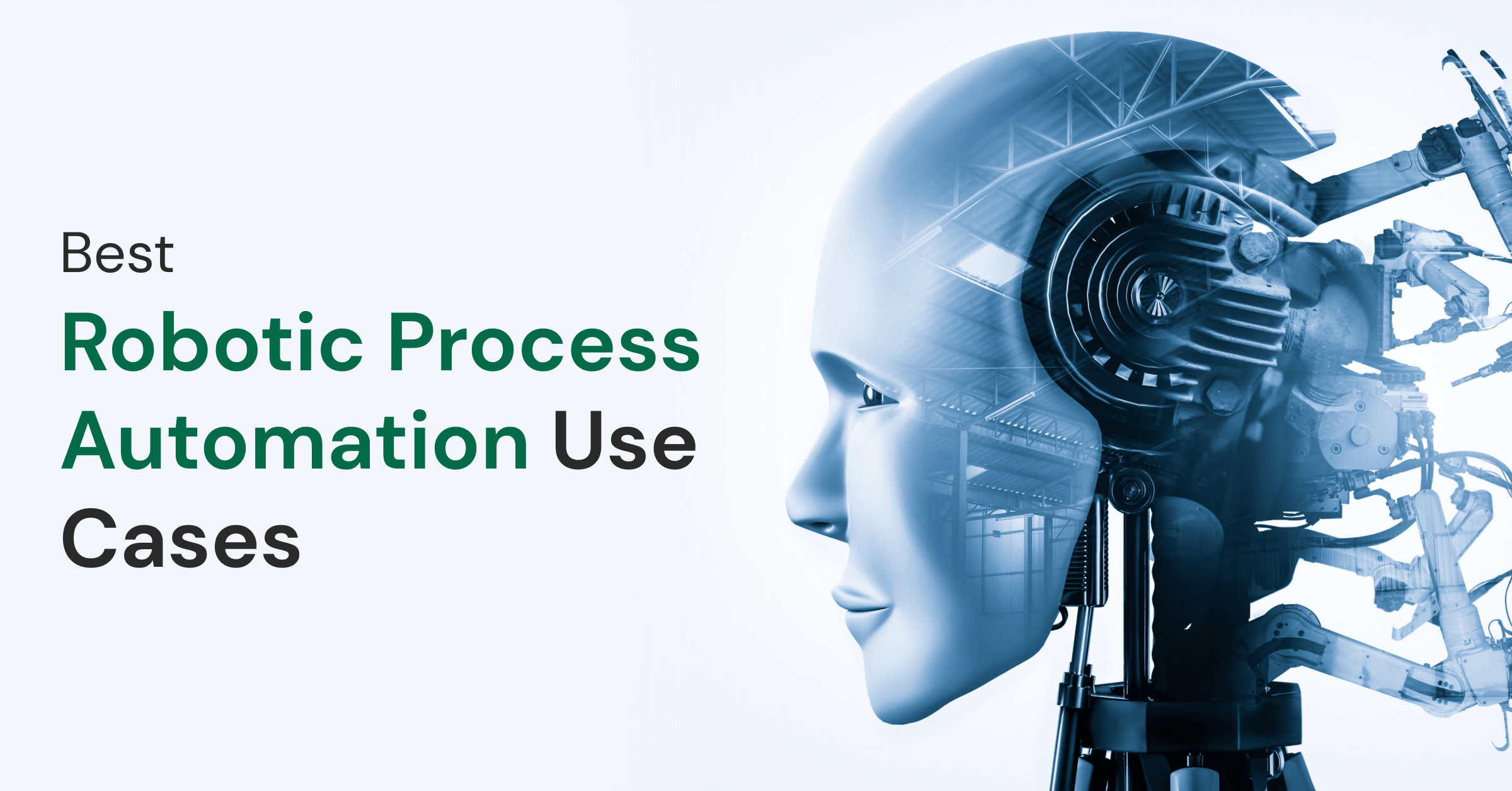
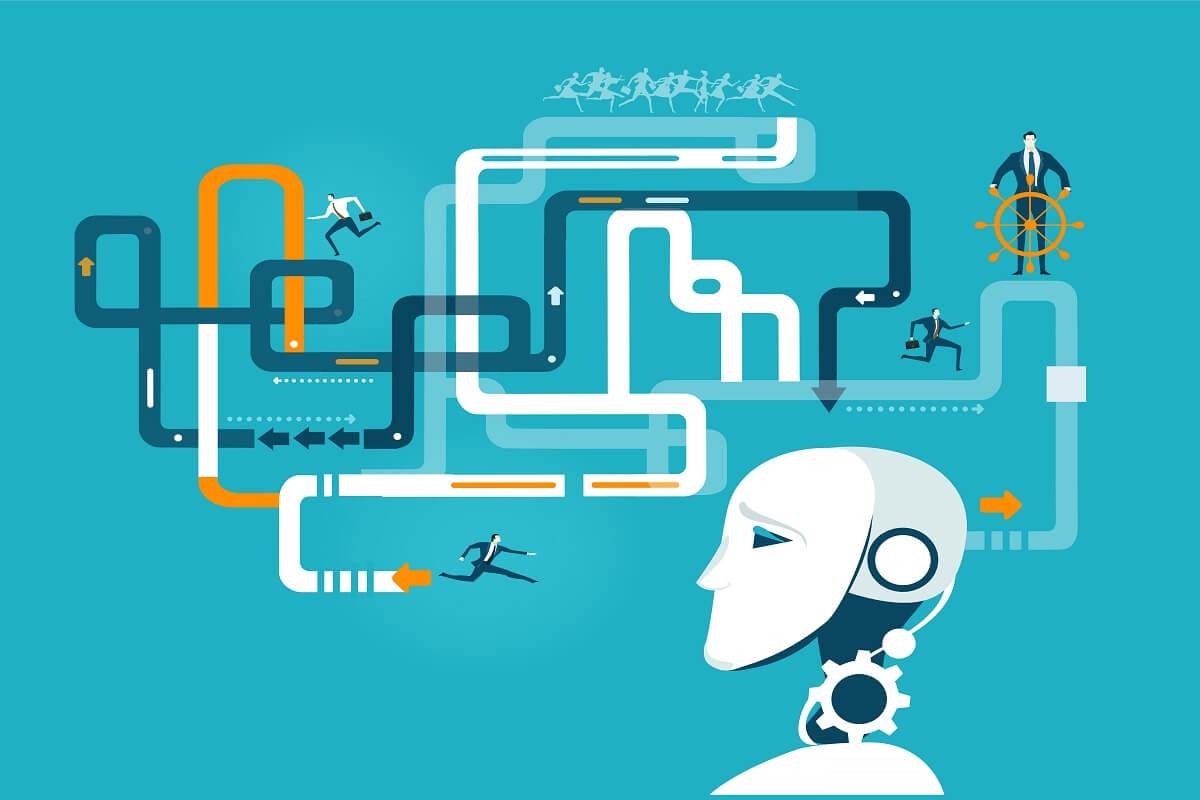

Thank you for sharing your expertise and insights through this blog. Whether it's offering practical advice, sparking inspiration, or fostering meaningful discussions, your articles never fail to leave a lasting impression. Your dedication to providing quality content is evident, and it's greatly appreciated by your readers.